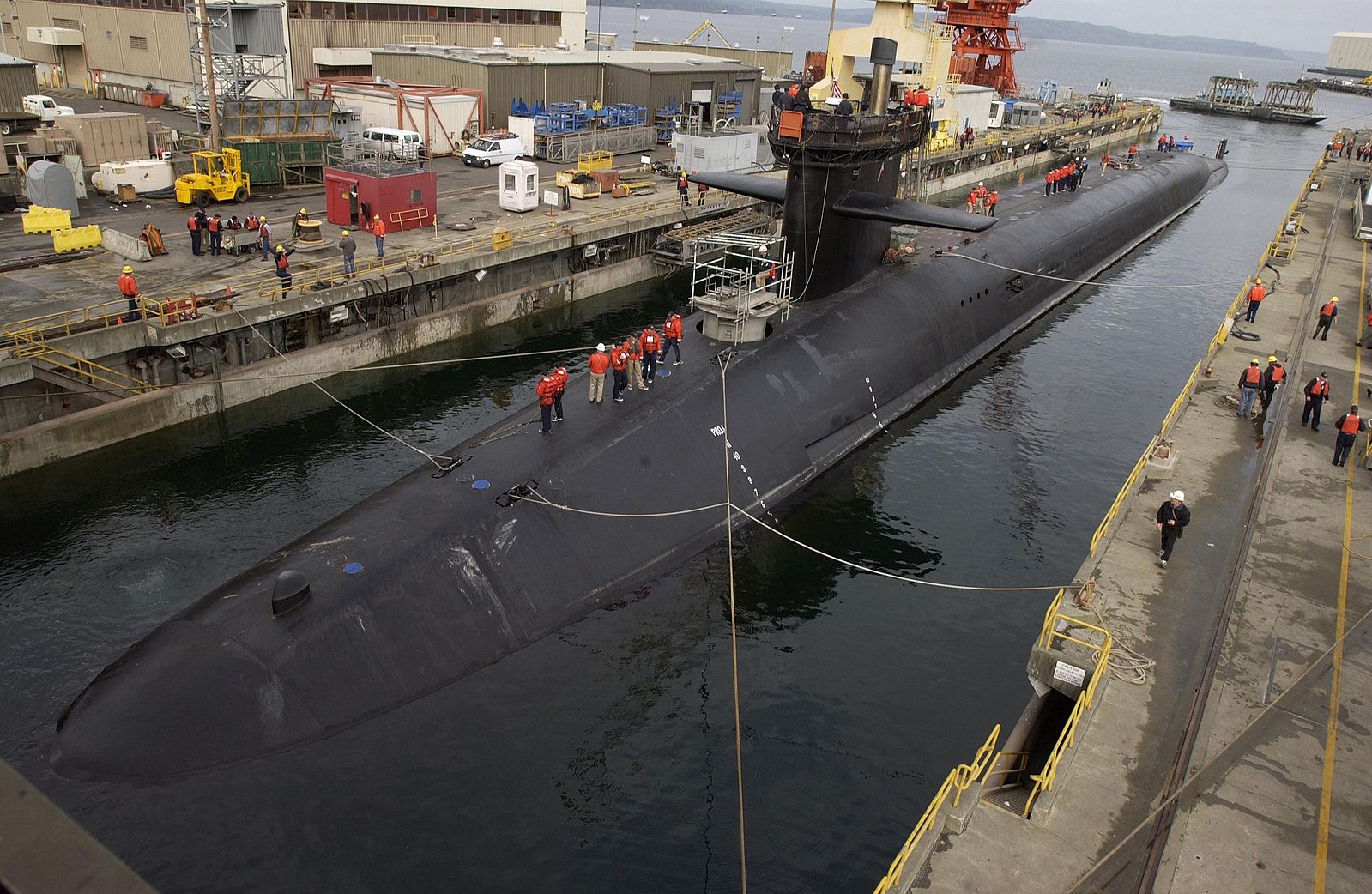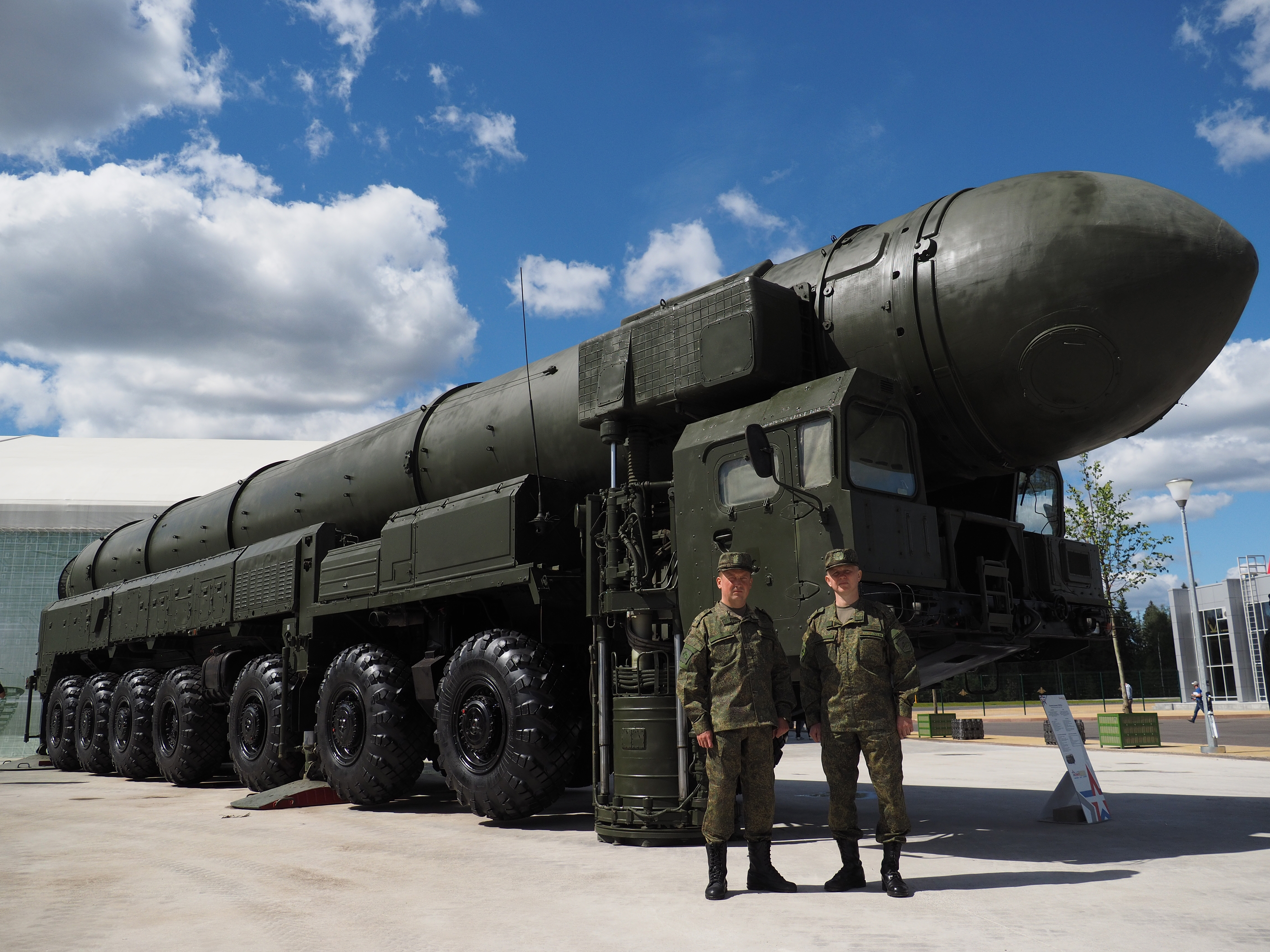
Donald Trump's presidential election victory raises many international security questions, including critically the future of a US ballistic missile shield in Europe, an effort long opposed by someone with whom Trump wishes to build a new relationship—Russian President Vladimir Putin.
The European ballistic missile shield is ostensibly aimed at protecting NATO territory from an attack by Iran. Obama administration officials say the shield is needed regardless of the implementation earlier this year of the multinational nuclear deal with Tehran, which would reasonably seem to have decreased prospects for a nuclear missile attack on Europe for at least the next 15 years, if not forever. Moscow argues that, after the Iran deal was concluded, continued work on Eastern European missile interceptor sites shows the true purpose of the missile shield: to undermine Russia's nuclear deterrent. "Our task is to effectively neutralize any military threats to Russia's security," Putin was quoted as telling Russian defense officials last month, "including those connected with creation of strategic missile defense."
European missile defense is closely connected to the future of arms control talks with Russia, which have stalled in recent years as both nations pursue nuclear arms modernization programs that some characterize as a new Cold War.
The US missile defense assets deployed in Europe are part of a "phased adaptive" system that includes a new ballistic missile interceptor site in Romania, interceptor-carrying ships based in Spain, and an even more-powerful missile defense installation planned for Poland in 2018. The Obama administration proceeded with its antimissile plans despite warnings from some US and Russian experts that Putin's opposition could jeopardize current and future arms control treaties. Russia has threatened to retaliate for the development of the Romanian and Polish interceptor sites by, among other things, placing them at the very top of its nuclear targeting list. It also plans to deploy nuclear-capable missiles to Kaliningrad, a Russian exclave that borders several NATO states, including Poland and Lithuania.
Another possibility looming on the horizon: Russia's unilateral withdrawal from a 1987 arms control accord, the Intermediate Range Nuclear Forces Treaty (INF), that was key to reducing tensions and forward-deployed nuclear forces in the 1980s. And if the INF dissolves, some see the possibility that a Republican-dominated US Congress may seek to pull the United States out of New START, the 2010 agreement to limit US and Russian deployed nuclear warheads to 1,500 for each country.
"Much of the fissures of the Cold War are revived. Some of the fissures are even worse," observes Alexei Arbatov, a scholar in residence at the Carnegie Endowment's Moscow Center and a former member of the Russian State Duma and deputy chairman of its defense committee.
Trump's views a mystery.
Though he will assume the presidency in less than two months, Trump's views on missile defense are a public mystery. The former reality-television star has barely spoken about the subject in public, and when he has, it has been in relation to ship-based interceptors. What the new president eventually decides on European missile defense is likely to spill over, affecting the entire array of US-Russian nuclear weapons agreements.
Philip Coyle, a former White House adviser to Obama on defense, science, and technology issues, says if Trump wants to send a concrete signal of rapprochement to Putin, the easiest thing he could do would be to stall work on the Romania and Poland missile defense sites. "If he wanted to pick one thing that Russia would approve of, it would be to temporize on the phased adaptive approach in Europe," says Coyle, now with the Center for Arms Control and Non-Proliferation.
Trump, however, will have to contend with a Republican-dominated Congress that is eagerly anticipating more money for missile defense, including revival of Reagan-era plans for a space-based missile shield, which was a source of deep worry for the Soviet Union. And European missile defense has strong support from many Democrats in Congress, including Sen. Jeanne Shaheen of New Hampshire, the top Democrat on the Foreign Relations Committee's Europe and Regional Security Cooperation subcommittee.
Shaheen, who also serves on the Senate Armed Services Committee, believes Trump will run into fierce opposition in Congress should he try to slow-walk or pause work on the Polish interceptor site as a carrot to Putin: "I am part of a majority in the Senate and in Congress who believe that all of the efforts that we are taking in the Baltics and in Eastern Europe are very important both to deterring Russia's threat to Eastern Europe and also in reassuring our allies there that we are going to do everything we can to stand with them."
While Trump's national security cabinet is not yet in place, some of his picks to lead the Pentagon transition effort are strong proponents of missile defense. One is Mira Ricardel, former acting assistant secretary of defense for international security policy during the George W. Bush administration. She has called for expanding Obama's European missile defense plans.
Sergei Karaganov, honorary chairman of Russia's nongovernmental Council on Foreign and Defense Policy, whose writing on foreign policy is seen as influential within the Kremlin, says the missile defense sites are "utter stupidity," because Russia will only put them at the top of its targeting list. "It makes absolutely no sense in terms of providing security for Europe or for anyone else," he said.
Treaties under attack by Russia, US hawks
The growing US antimissile presence in Eastern Europe and the fate of the INF treaty are intimately connected. The activation of the Polish interceptor site would increase the likelihood of Russia dropping out of the INF agreement, decrease the chances of Russia agreeing to negotiate a follow-on to the New START strategic arms control accord when it expires in early 2021, and goad Russia into further modernization of its nuclear arsenal, some Russian analysts say. The Obama administration said it became certain in 2011 that Russia was testing a new ground-launched cruise missile in violation of the INF pact, which bans both superpowers from testing and deploying any missile with a range between 310 and 3,400 miles. The treaty set the stage for both countries to remove forward-deployed nuclear missile systems from the European theater.
After three years of privately trying to persuade Russia to admit to the treaty violation, the United States in 2014 went public with its accusations. Russia has denied any breach of the accord, even as some senior Kremlin officials question whether remaining part of the treaty is in the country's interests.
China, India, Pakistan, and even North Korea are developing missiles capable of targeting Russia; Moscow increasingly feels that the INF treaty ties its hands in responding to and deterring these nuclear threats from the east.
Inside Russian policy circles, there is disagreement over whether Moscow should withdraw from the pact unilaterally or wait for the United States to take that step first, and then claim foul before the international community. Ivan Konovalov, head of the Moscow-based Center for Strategic Trends Studies, believes there is a "high possibility" of Russia exiting the treaty in 2018 in response to the scheduled activation of the Polish missile defense site.
"There are lots of discussions and talks on political levels in Russia on leaving the INF treaty as an answer to the US," says Konovalov, a frequent commentator for Russian news television shows. "Since the US is refusing to discuss or talk about those missiles [defense sites] or possible establishment of those missiles in Europe, Russia is obviously thinking of the answer they are going to have for that action."
Meanwhile, Congress has required the Pentagon to develop but not explicitly test military capabilities that can be used to neutralize any advantages gained by Russia through its development of intermediate-range missiles. President-elect Trump should be receiving an official report on that work early in his administration.
Dmitri Trenin, director of the Carnegie Moscow Center, who is seen as well-connected to the Kremlin, says policymakers in Moscow and Washington need to realize they are better off with the INF, even though "you may say that a lot of countries are arming themselves exactly with the weapons that the United States and the Soviet Union renounced in 1987."
New START in danger of bad end? Arbatov fears that if Russia's complaints about the missile defense sites continue to be ignored, and if Moscow in turn does not appease the United States over Russia's reported violations of the INF treaty, then both that agreement and New START may be allowed to expire--or be abrogated outright. Republicans in Congress will call for US withdrawal from the New START accord in retaliation for Russian violations of the INF accord, he believes. "If the INF treaty is abrogated, I envision, very soon, pressure on the part of the United States to do away with New START," Arbatov says.
Indeed, among some defense experts, the treaty is seen as giving an economic advantage to Russia, which could not afford to develop many nuclear delivery systems above the 800 allowed under the treaty, while the United States could. At a 2015 House hearing, Rep. Doug Lamborn, a Colorado Republican, questioned the wisdom of remaining part of New START. "We are handicapping ourselves in some ways through New START… If they are cheating in other areas [such as the INF accord] . …should we continue handicapping ourselves?" the Colorado Republican asked.
It could be many months before the incoming Trump administration decides on its nuclear and missile defense posture toward Europe. While missile defense issues received only glancing attention during the presidential campaign, Moscow's focus on US interceptors in Europe invariably means they will play a key role in relations between the two countries, whether Trump wants them to or not. Therefore, the Trump administration should give careful consideration to just what is at stake in the broader strategic relationship before it makes decisions on the future of European missile defense.





